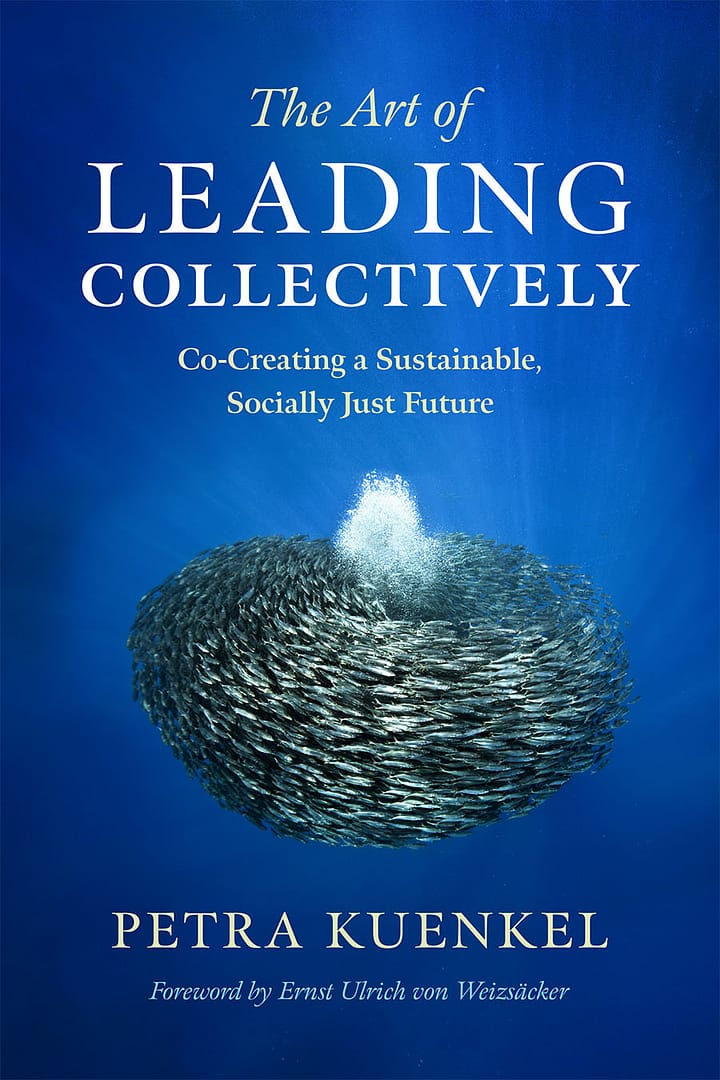| Pages: | 304 pages |
| Book Art: | Black-and-white illustrations throughout |
| Size: | 6 x 9 inch |
| Publisher: | Chelsea Green Publishing |
| Pub. Date: | January 20, 2016 |
| ISBN: | 9781603586269 |
The Art of Leading Collectively
Co-Creating a Sustainable, Socially Just Future
A guide to collaborative impact for leaders in industry, government, and social change networks
Our world is facing unsustainable global trends—from climate change and water scarcity to energy insecurity, unfair labor practices, and growing inequality. Tackling these crises effectively requires a new form of leadership—a collective one. But, in a world of many silos, how do we get people to work together toward a common goal? That is one of the most important questions facing sustainability and social-change professionals around the world, and it is a question that Petra Kuenkel answers in The Art of Leading Collectively.
Readers learn how to tackle system change for sustainable development, reimagine leadership as a collaborative endeavor, retrain leaders to work collectively, and manage diverse groups through a change process that has sustainability as a guiding focus. Drawing upon two decades of pioneering, internationally recognized work orchestrating multi-stakeholder initiatives, Kuenkel presents her chief tool, the Collective Leadership Compass, and shows others how to use it with large groups of diverse stakeholders to solve complex, urgent problems—particularly those that enmesh business activities, governance, human needs, and environmental impacts.
The book offers many examples of collective leadership efforts involving corporate, public, and nonprofit sectors around the world. Readers learn about the processes that led to a sustainable textile alliance and set standards for sustainable cocoa and coffee production and trade, as well as those that helped nations rebound from war, develop sustainable infrastructure, and tackle resource conflicts with global businesses, to name a few.
Kuenkel provides a clear roadmap for leaders from multinational companies involved in partnerships, international organizations engaged in cooperative development, public agencies, and interest groups—as well as for citizens seeking solutions to social and sustainability challenge
Reviews and Praise
Choice-
"The philosophical premise of this work is that global stakeholder collaboration leads to a human rights–based world that is economically and environmentally sustainable. Kuenkel (founder, Collective Leadership Institute) presents a simple four-step process for the complex activity of leading collectively: “Prepare for your journey into collaboration from the outset; Locate where you are, defining what is present and what’s missing; Map the path, adjust your strategies, and know what to shift, to strengthen, or to focus on; Convince your colleagues that leading collectively for sustainability can change the world.” The underlying change-management theory explored in this book closely follows the eight-stage process for leading change as first presented in John Kotter's Leading Change (1996) and incorporates many disciplines of the learning organization presented in Peter Senge's The Fifth Discipline (CH, Jan'07, 44-2797). References in this book to the three levels of the compass are reminiscent of Bill George's Finding Your True North (2008). This book follows up the author's earlier book Working with Stakeholder Dialogues (2011). It is an easy read and uses tables to guide readers through sometimes esoteric dialogue about collaborative endeavors. Summing Up: Recommended. General readers, undergraduates.”
More Reviews and Praise







